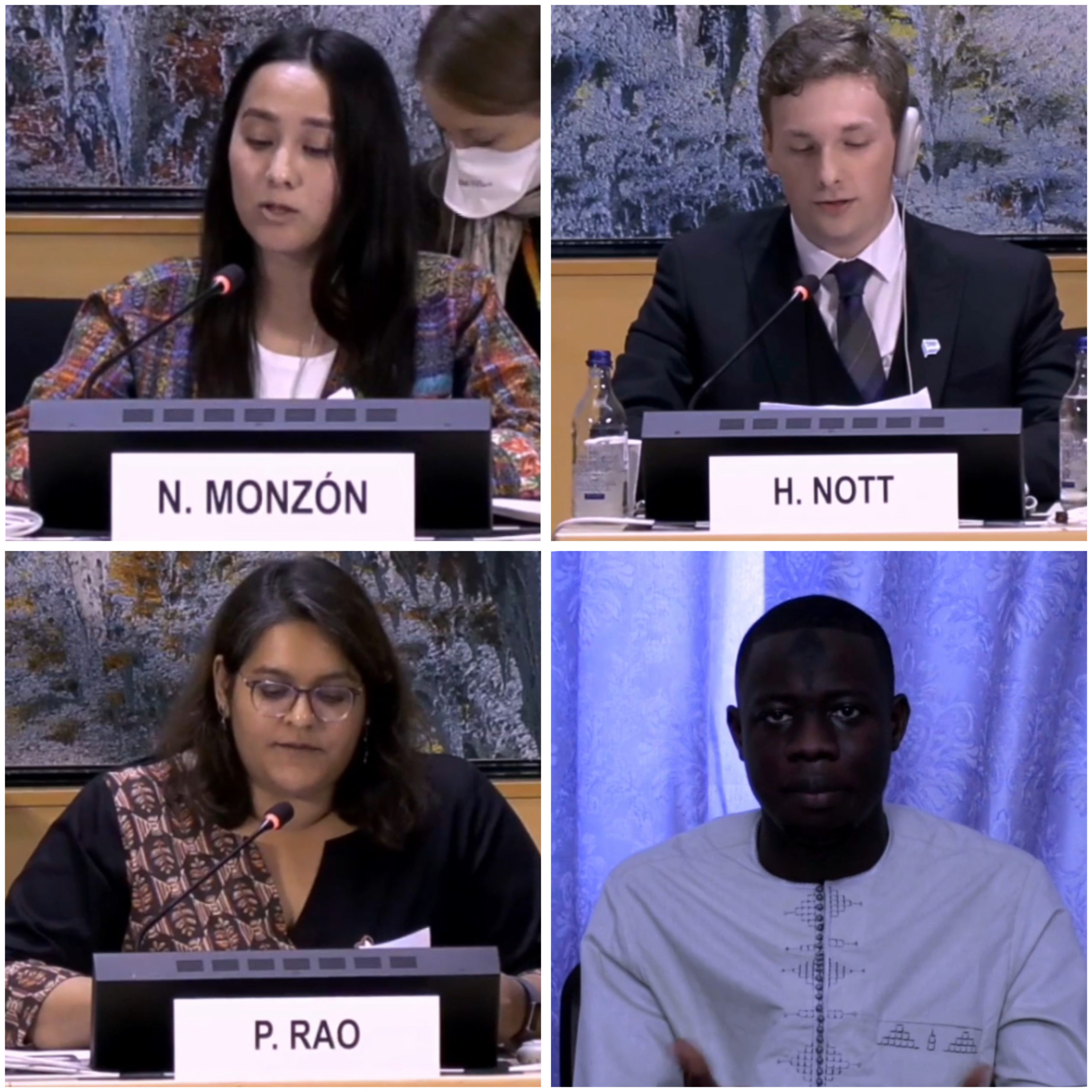
Youth at the forefront: building peaceful societies and advancing human rights
On 16 September 2025, the voices of young people, powerfully resonated at the Human Rights Council’s Biennial Panel “The role of youth in fostering peaceful societies and creating an enabling environment for the enjoyment of human rights by all” (watch the Session here). With 1.9 billion young people worldwide, the message was clear: youth are not only future leaders, but present agents of peace and human rights.
Deputy High Commissioner Nada Al-Nashif opened with a call to take youth seriously as bridge-builders in an increasingly polarized world. She warned of shrinking civic space, attacks on young defenders, and the mental health risks linked to online harassment – underscoring the urgent need for regulation that protects without silencing.
UN Assistant Secretary-General for Youth Affairs Felipe Paullier urged states to move beyond symbolic consultation toward genuine partnerships, where young people share real decision-making power.
Young panelists also shared their experiences and instances of concrete projects. In Guatemala, Nelly Monzón showed how the Nab’il Project enables Indigenous and Mestizo youth to sit at the table with local authorities and turn their ideas into policy. From Scotland, Hamish Nott revealed how a youth-led parliament is reshaping society – securing free bus travel for under-22s and embedding the Convention on the Rights of the Child into national law. Pala Rao of SAIH connected today’s struggles to a long tradition of student activism for climate, racial and gender justice, but also warned on the growing risks faced by young defenders globally. And from Gambia, Bakary D. Sonko reminded everyone that youth participation is not symbolic: it only becomes real when rooted in trust, accountability and transparency.
States also contributed, among which El Salvador highlighted that youth participation must become a norm rather than an exception; Portugal underlined digital inclusion and mental health and specifically affirmed that the mental well-being of young persons is critical to sustaining peace; and the Marshall Islands recognized how youth refuse to inherit silence and how they act against silence through creativity and solidarity.
The panel revealed both the obstacles and the potential of youth in shaping peaceful, inclusive societies. Far from being passive beneficiaries, youth are already rebuilding the present of human rights.
IIMA, on behalf of an NGO coalition, delivered an oral statement highlighting that education empowers young people to engage fully and drive social transformation. It strongly argues that ensuring youth access to rights is a strategic investment for the stability and resilience of peaceful societies. It called on States to remove barriers to participation, guarantee quality human rights education, and ensure youth rights are protected through UN mechanisms.
The texts and videos of all oral statements are available on IIMA website.
To find out about IIMA commitment for Youth, click here.

